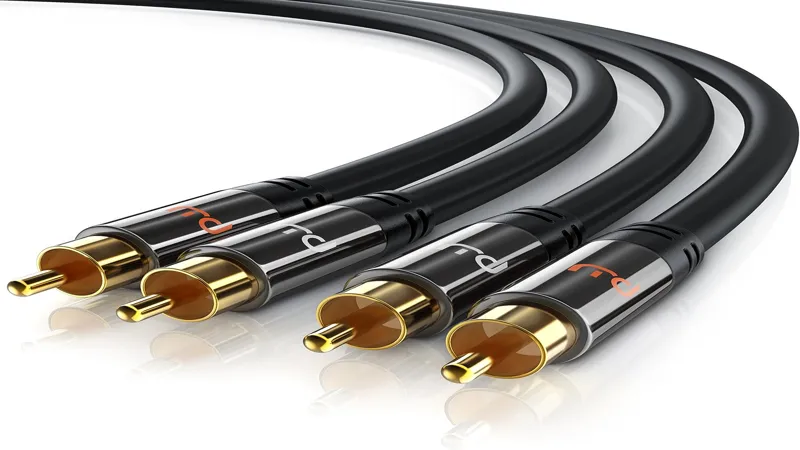In the world of audio enthusiasts, the debate over expensive cables versus budget-friendly options has become a perennial topic. Many audiophiles firmly believe that high-end cables are essential for achieving superior sound quality, but recent studies challenge this notion. Surprisingly, blind tests reveal that listeners often cannot distinguish between pricey and affordable cables, suggesting that our perceptions can be heavily influenced by expectation bias. This introduction aims to dissect the myth surrounding expensive audio cables, highlighting the aspects that genuinely impact sound quality and encouraging readers to invest wisely in their audio setups.
| Attribute | Details |
|---|---|
| Main Idea | Expensive audio cables do not improve sound quality meaningfully; perception can be influenced by expectation bias. |
| Blind Tests | In blind tests, people cannot reliably tell apart expensive and budget audio cables. |
| Cables as Conductors | Cables simply carry electrical signals; their quality is determined by gauge, shielding, and resistance. |
| Key Investment Areas | Invest in speakers, room acoustics, and good audio sources for better sound quality rather than expensive cables. |
| Speaker Cable Gauge | Lower gauge numbers (thicker wires) have less resistance; 16-gauge is good for short runs (<25 feet), 14 or 12-gauge for longer runs. |
| Material | Copper is the best material for speaker cables due to its excellent conductivity. |
| Cable Length | Longer cables can degrade signal; use appropriate gauge for the distance. |
| Cable Shielding | Shielding protects against interference, important for analog cables; less critical for speaker and digital cables. |
| Connector Quality | Look for well-attached, durable connectors; gold plating is optional but can prevent corrosion. |
| Reviews and Ratings | Read reviews, especially 3-4 star ratings, for honest feedback; avoid over-the-top claims. |
| Recommended Brands | Brands like Monoprice, Mogami, and Amazon Basics offer reliable cables without high prices. |
| Marketing Claims | Be wary of exaggerated marketing terms; focus on actual cable quality and specifications. |
Understanding Expectation Bias in Audio Quality
Expectation bias can trick our brains into thinking something sounds better than it really does. For example, if I gave you two glasses of water and told you one was from a fancy glacier, you might believe it tastes better. This is similar to how people perceive expensive audio cables; they expect a better sound quality. However, when tested without any hints about price or brand, many people can’t tell the difference between high-end and budget cables.
This phenomenon isn’t just a theory; it has been proven in scientific tests. In double-blind studies, people guess which cable sounds better at the same rate as flipping a coin. This shows that the sound quality difference between a cheap cable and an expensive one is so small it might only be noticeable in a laboratory, not by our ears. Thus, it’s important to be aware of how our expectations can shape our experiences.
Frequently Asked Questions
Do expensive audio cables really improve sound quality?
No, expensive audio cables do not enhance sound quality. Blind tests show that people cannot tell the difference between cheap and pricey cables.
What should I invest in for better sound quality?
Instead of expensive cables, invest in good speakers, an AV receiver, and improve your room acoustics for a noticeable sound quality upgrade.
What is the most important factor in speaker cables?
The wire gauge is crucial in speaker cables. Thicker wires (lower gauge numbers) carry signals more efficiently and reduce resistance, especially over long distances.
How can I choose reliable cheap audio cables?
Look for good shielding, solid build quality, and reliable connectors. Avoid flimsy cables and check reviews for durability before buying.
What type of wire should I use for home audio?
For most home setups, 16-gauge wire is fine for runs under 25 feet. For longer distances, consider 14-gauge or 12-gauge wire.
Does the length of the cable matter?
Yes, longer cables can introduce more resistance. Use appropriate gauge cables for the distance to maintain sound quality.
Are gold-plated connectors worth the extra cost?
Gold-plated connectors resist corrosion but aren’t essential. Focus more on how well connectors are attached and their build quality.
Summary
Many people believe that expensive audio cables improve sound quality, but studies show this isn’t true. In blind tests, listeners can’t tell the difference between high-priced and budget cables, largely due to expectation bias. Instead of spending money on fancy cables, it’s better to invest in key audio components like speakers, receivers, and room acoustics, which significantly impact sound quality. For most home setups, using good quality, appropriately gauged copper cables is sufficient. Focus on upgrading essential gear rather than getting caught up in marketing hype around pricey cables.
